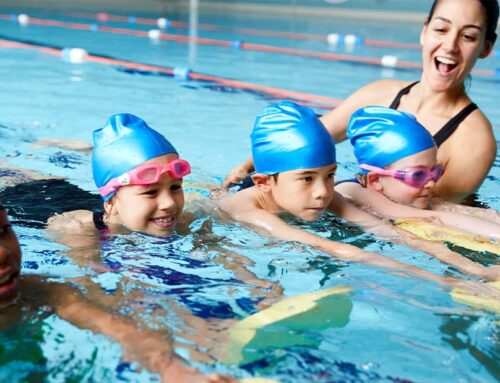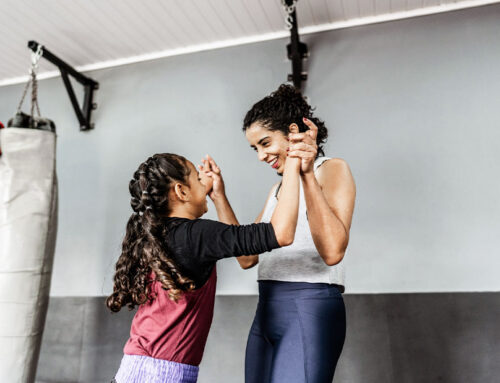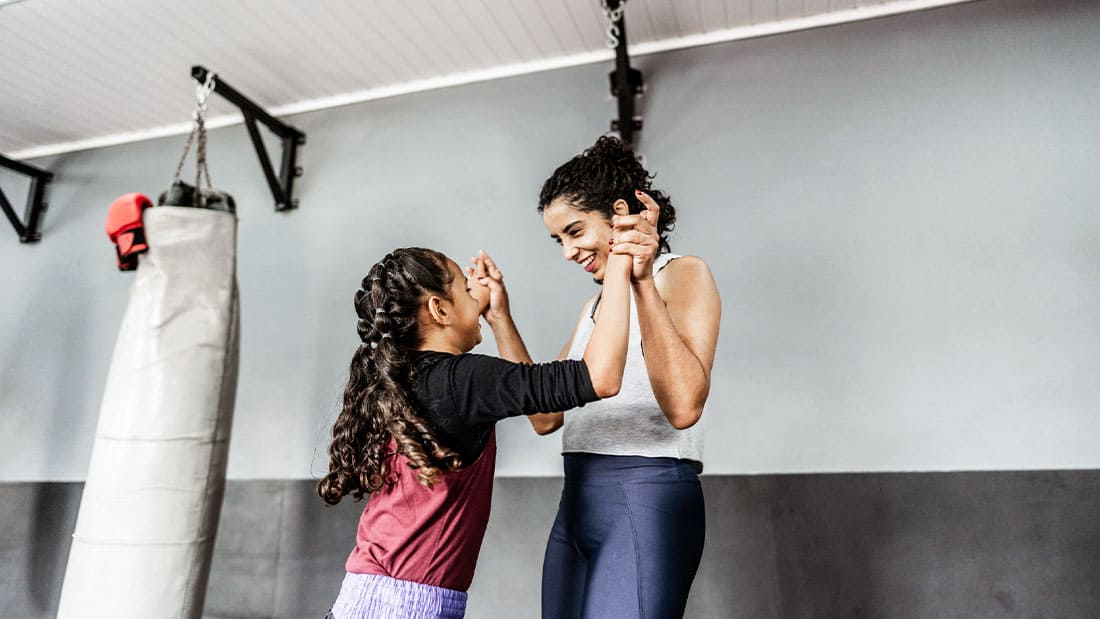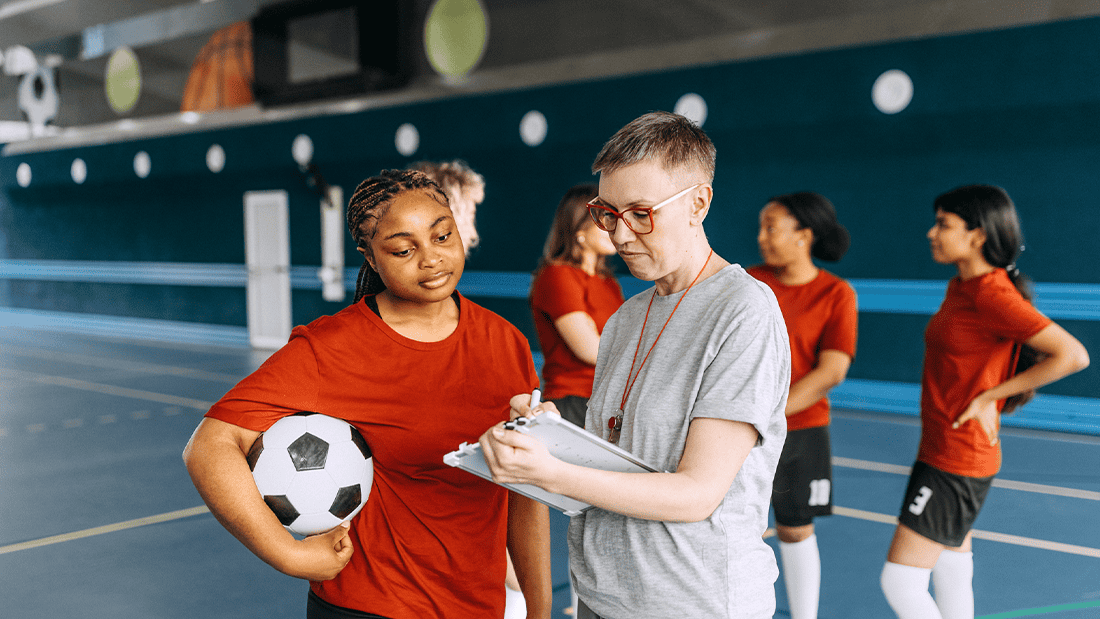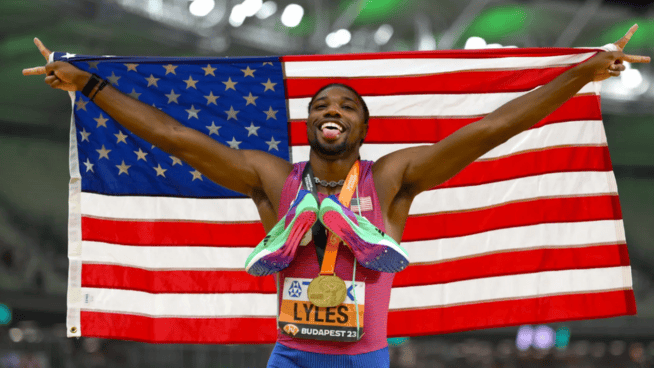Why Parents Need to Encourage Youth Athletes to Play Multiple Sports
When it comes to our kids, we want the best for them. If they are passionate about a sport, we do everything possible to help them reach their full potential. Unfortunately, our desire to help is often misguided.
We believe—or we’re told—that more is better. If they can become really good playing basketball six months a year, they’ll be even better if they play year round! But this simply is not the case. Multi-sport participation vs. early specialization is a hot topic. Make sure your desire to help your youth athletes is pointing them in the right direction.
A consensus statement from the American Orthopaedic Society for Sports Medicine declares that early specialization is not a requirement for success in sports. Tony Gentilcore’s great article is another resource that shows parents why they need to think twice before giving up on multi-sport participation.
The negative effects of early specialization have been well-documented. Here are some of the benefits of playing a variety of sports:
1. Better overall athletic development
The best athletes are powerful, fast and agile. To develop these qualities, young athletes must move in many different ways. Focusing on one sport limits overall muscular development. The athletic demands of one sport can carry over to other sports. Skill development is not as important as athletic development in the early stages.
2. Improved neuromuscular efficiency and coordination
At an early age, the central nervous system is like a sponge. It’s ready to learn and soak up new movement patterns very quickly. The older we get, the harder it is to learn skills developed during multi-sport participation. The more comfortable we become moving our body in multiple ways, the more efficient we will be at performing tasks.
3. Mental toughness
It’s human nature to take the path of least resistance. We do what we are good at. However, avoiding what we find challenging does not lead to development and success in life. You can be the best quarterback, but you may struggle at tennis. Taking the time to improve at a sport you find hard will give you a sense of accomplishment and teach you important life lessons.
4. Chance to discover new interests
You’ll never know until you try! The saying holds true for sports. Your little hockey player may be surprised to find that he loves baseball if he gives it a shot.
5. Reduce the likelihood of burnout
There’s a good chance your young athlete will get bored playing one sport for years and years. Kids crave new experiences and variety. Keeping them active in a variety of sports will keep them motivated.
6. Fun!
This is the most important benefit of multi-sport participation. Never forget why we play sports in the first place. We want our kids to play with their friends, develop new relationships and live a healthy lifestyle.
READ MORE:
- Three Benefits of Being a Young, Multi-Sport Athlete
- 6 Rules for Multi-Sport Success
- How Playing Multiple Sports as a Kid Helped Aaron Rodgers Become a Better Athlete
RECOMMENDED FOR YOU
MOST POPULAR
Why Parents Need to Encourage Youth Athletes to Play Multiple Sports
When it comes to our kids, we want the best for them. If they are passionate about a sport, we do everything possible to help them reach their full potential. Unfortunately, our desire to help is often misguided.
We believe—or we’re told—that more is better. If they can become really good playing basketball six months a year, they’ll be even better if they play year round! But this simply is not the case. Multi-sport participation vs. early specialization is a hot topic. Make sure your desire to help your youth athletes is pointing them in the right direction.
A consensus statement from the American Orthopaedic Society for Sports Medicine declares that early specialization is not a requirement for success in sports. Tony Gentilcore’s great article is another resource that shows parents why they need to think twice before giving up on multi-sport participation.
The negative effects of early specialization have been well-documented. Here are some of the benefits of playing a variety of sports:
1. Better overall athletic development
The best athletes are powerful, fast and agile. To develop these qualities, young athletes must move in many different ways. Focusing on one sport limits overall muscular development. The athletic demands of one sport can carry over to other sports. Skill development is not as important as athletic development in the early stages.
2. Improved neuromuscular efficiency and coordination
At an early age, the central nervous system is like a sponge. It’s ready to learn and soak up new movement patterns very quickly. The older we get, the harder it is to learn skills developed during multi-sport participation. The more comfortable we become moving our body in multiple ways, the more efficient we will be at performing tasks.
3. Mental toughness
It’s human nature to take the path of least resistance. We do what we are good at. However, avoiding what we find challenging does not lead to development and success in life. You can be the best quarterback, but you may struggle at tennis. Taking the time to improve at a sport you find hard will give you a sense of accomplishment and teach you important life lessons.
4. Chance to discover new interests
You’ll never know until you try! The saying holds true for sports. Your little hockey player may be surprised to find that he loves baseball if he gives it a shot.
5. Reduce the likelihood of burnout
There’s a good chance your young athlete will get bored playing one sport for years and years. Kids crave new experiences and variety. Keeping them active in a variety of sports will keep them motivated.
6. Fun!
This is the most important benefit of multi-sport participation. Never forget why we play sports in the first place. We want our kids to play with their friends, develop new relationships and live a healthy lifestyle.
READ MORE:
- Three Benefits of Being a Young, Multi-Sport Athlete
- 6 Rules for Multi-Sport Success
- How Playing Multiple Sports as a Kid Helped Aaron Rodgers Become a Better Athlete

